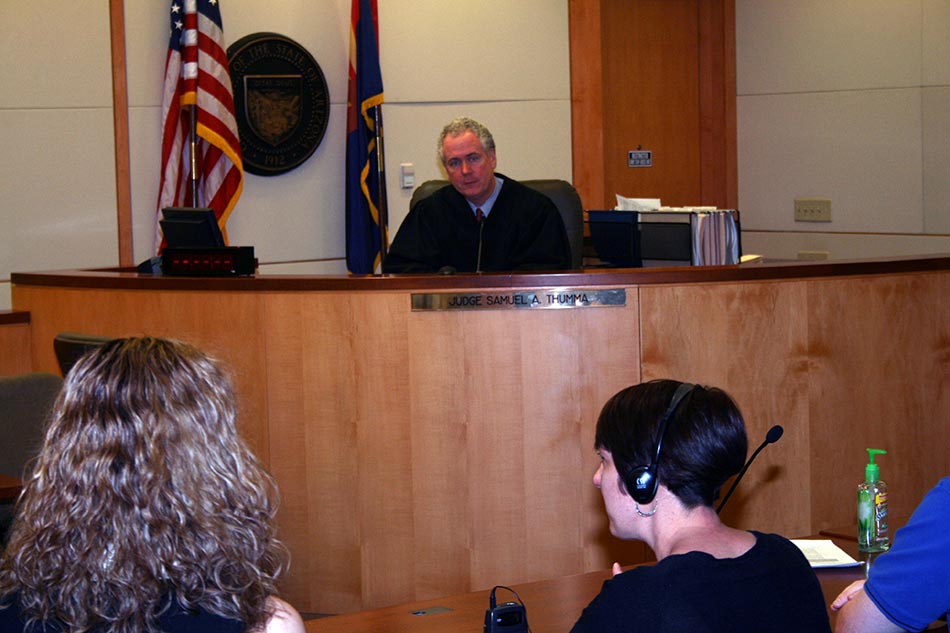IN THIS PHOTO: Judge Samuel Thumma; Mayela T., Translator; Parents
The Advisory Hearing
The Advisory Hearing also is designed to make sure that the juvenile knows he or she has certain rights, including:
- The right to be represented by an attorney.
- The right to a trial on the charge.
- That the juvenile is presumed innocent and that the charge must be proven by proof beyond a reasonable doubt.
- The right to confront and ask questions of people who might testify at trial.
- The right to call people to testify at trial and use the court's power to bring those people to court even if they did not want to attend.
- The right to remain silent.
Another purpose of the Advisory Hearing is to make sure that the juvenile knows of possible consequences if the charge is proven beyond a reasonable doubt. Possible consequences can include:
- Probation, which is court-ordered supervision of the juvenile by a Juvenile Probation Officer. There are three general types of probation: Summary; Standard and Intensive Probation. At a minimum, probation generally includes a direction by the court (called an order) that the juvenile follow parents' rules; obeys all laws; goes to school or work regularly; does not leave Arizona without the advanced permission of their Probation Officer and other requirements.
- Detention, which is locking up a juvenile in a secure place for up to a year in what some people call "juvenile jail."
- Committing (sending) the juvenile to the Arizona Department of Juvenile Corrections to be held in a secure place until up to the juvenile's 18th birthday.
- Other consequences, including unpaid community service hours (work hours); payment of damages caused by the juvenile (called restitution); payment of fines; drug testing; counseling and loss of driving privileges.
At the Advisory Hearing, the juvenile will need to decide whether to admit or deny the charge. If the juvenile denies the charge and wants a trial, the court will set a trial (called an Adjudication Hearing). If the juvenile denies the charge and shows why more time is needed, the judge may set another hearing that is not a trial. If the juvenile wants to admit the charge, the judge will ask the juvenile various questions.

